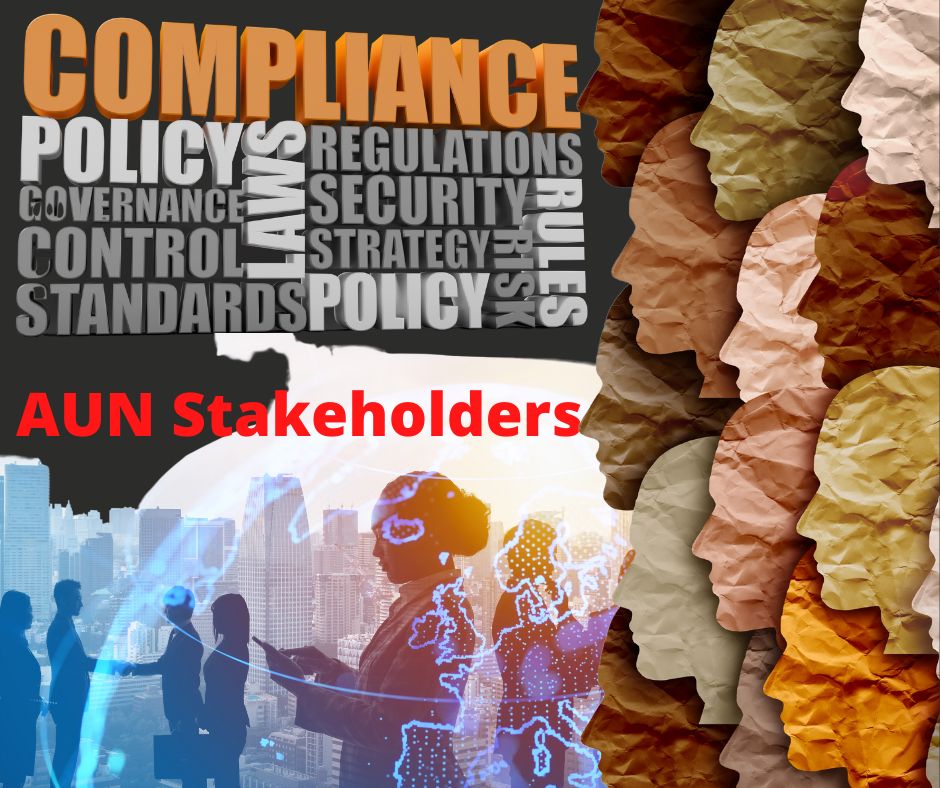
AUN News: Giving a Voice to the Voiceless to Achieve Inclusivity and the SDGs
For an SDG’s agenda to be achieved, the SDG’s most essential stakeholders need to be given a voice in policy-making and implementation by connecting with relevant experts and best practices to execute that plan. AUN News being the media, news, and broadcasting channel of the Advocacy Unified Network amplifies the voice of the deprived and marginalized most crucial stakeholders in the policy-making process to bring inclusiveness to attain the SDGs. But what does it mean to be inclusive? And what can we do to achieve inclusivity at AUN News? The stakeholders of AUN News are Policy makers, Businesses and Enterprises, and Civil societies worldwide. This means:
No one is left behind.
No one is left out!
Everyone counts!
Everyone gets what they need!
3 Types of Stakeholders Who Benefit From Inclusivity in the Policy-Making Process
Many stakeholders benefit from inclusivity in the policy-making process, but three groups, in particular, are deprived and marginalized stakeholders among Businesses and Enterprises, Policy Makers, and Civil Society Organizations. For example, journalists produce media content on what is happening around the world and report on it; NGOs use advocacy work to bring about change in policies that might not have been implemented otherwise; research institutions perform research and analysis on different topics of interest; universities offer courses that can inform public policy, and researchers produce journals for policy-makers to read. These crucial stakeholders will not be able to provide proper input if there is no voice for them because their voices will never be heard.
Businesses and Enterprises
Inclusivity allows businesses and enterprises to have a say in policies that affect their operations. They can provide valuable input on issues such as taxation, regulation, and trade policy. By including them in the policy-making process, businesses and enterprises can help shape policies that are more conducive to economic growth and job creation.
Policy Makers
Inclusivity in the policy-making process ensures that policy makers have access to a diverse range of perspectives and ideas. By engaging with a wide range of stakeholders, policy makers can develop policies that are more responsive to the needs of society as a whole. They can also gain a deeper understanding of the issues they are working on and develop more effective solutions.
Civil Society Organizations
Inclusivity in the policy-making process is essential for civil society organizations to have their voices heard. NGOs, research institutions, and universities all have a vital role to play in informing public policy. By involving these organizations in the policy-making process, policy makers can tap into their expertise and knowledge to develop better policies. Civil society organizations can also help ensure that policies are implemented effectively, and hold policy makers accountable for their decisions.
In conclusion, inclusivity in the policy-making process is crucial for ensuring that all stakeholders have a voice in shaping policies that affect their lives. By including businesses and enterprises, policy makers, and civil society organizations in the process, we can develop policies that are more effective, responsive, and equitable.
AUN News amplifies the voice of these stakeholders to ensure that they are included in the decision-making process. Articles published by AUN News include international news articles, global news articles, and international event coverage with data points. Not only does AUN News publish pieces for all types of readers, but also stories about the people behind the events or ideas.
By publishing articles that cover international news or local issues, as well as stories highlighting marginalized people and organizations, AUN News provides a platform where everyone has an opportunity to share their opinions without censorship. Moreover, this platform informs audiences of events and actions happening worldwide that would otherwise go unnoticed in more isolated regions of the globe.
The best way to ensure all voices are heard is by giving access to means. They can communicate effectively with others—for instance, through broadcast media or social media platforms like Facebook or Twitter—and ensure equal representation during conversations so that everyone can speak without fear of reprisal.
About our Team
Policy-makers, businesses, enterprises, and civil society all have a vested interest in the success of AUN News. Our team is committed to giving a voice to the voiceless stakeholders mentioned above and achieving inclusivity so everyone can have a say in the policy-making process. We believe that this is essential for attaining the SDGs.
AUN News was established with the following objectives:
- To provide a platform for people from all walks of life to share their stories and experiences, regardless of their social status or economic background;
- To give people from all corners of society a chance to be heard;
- To bring about inclusivity in the policy-making process;
- To help achieve Sustainable Development Goals. We want to create an inclusive environment where people’s opinions are valued and respected, no matter who they are or what they do. That’s why we’re dedicated to ensuring that AUN News gives a voice to the voiceless and helps ensure that everyone has a say in the policy-making process. We hope to build a more inclusive world and achieve the SDGs by amplifying the voices of those who need it most.
